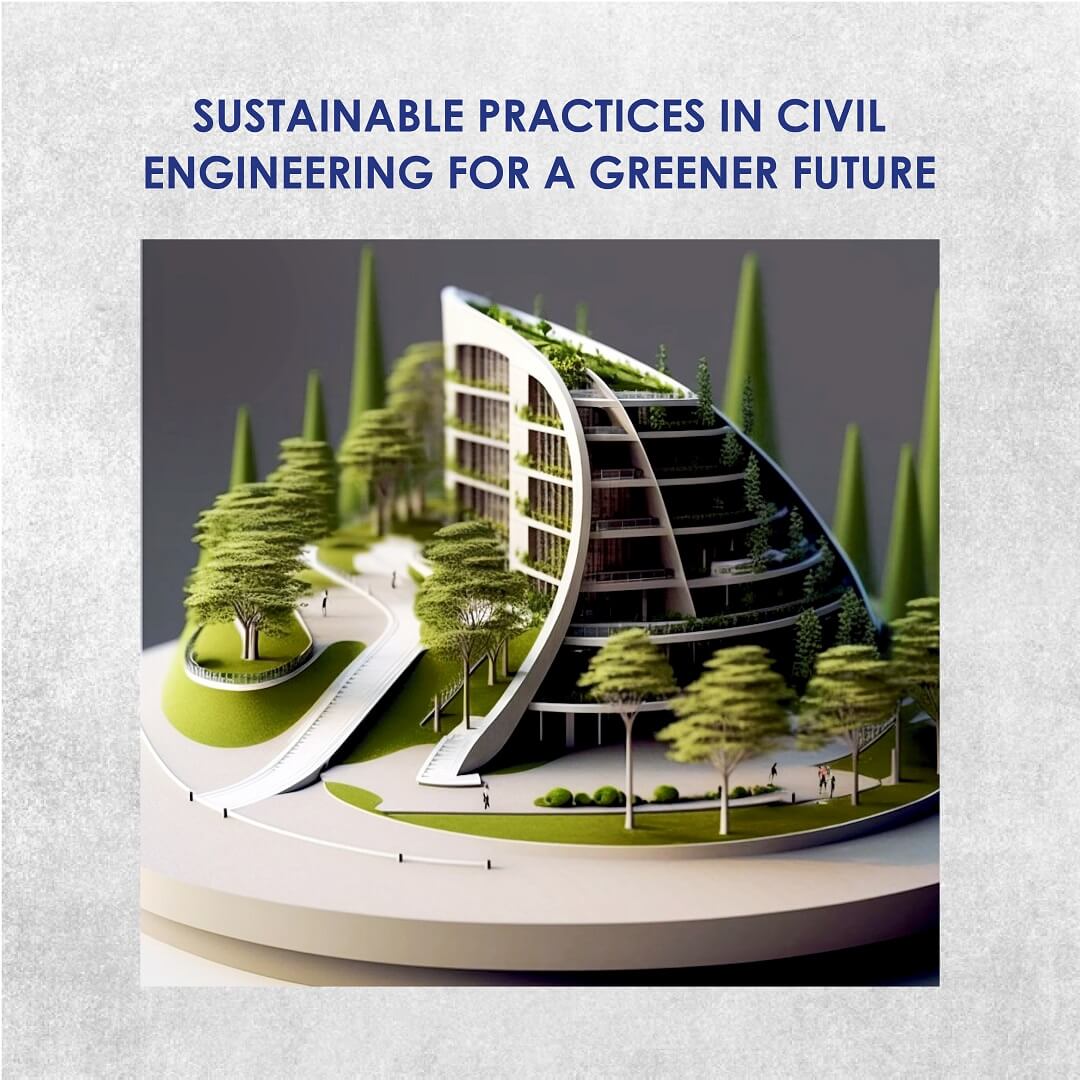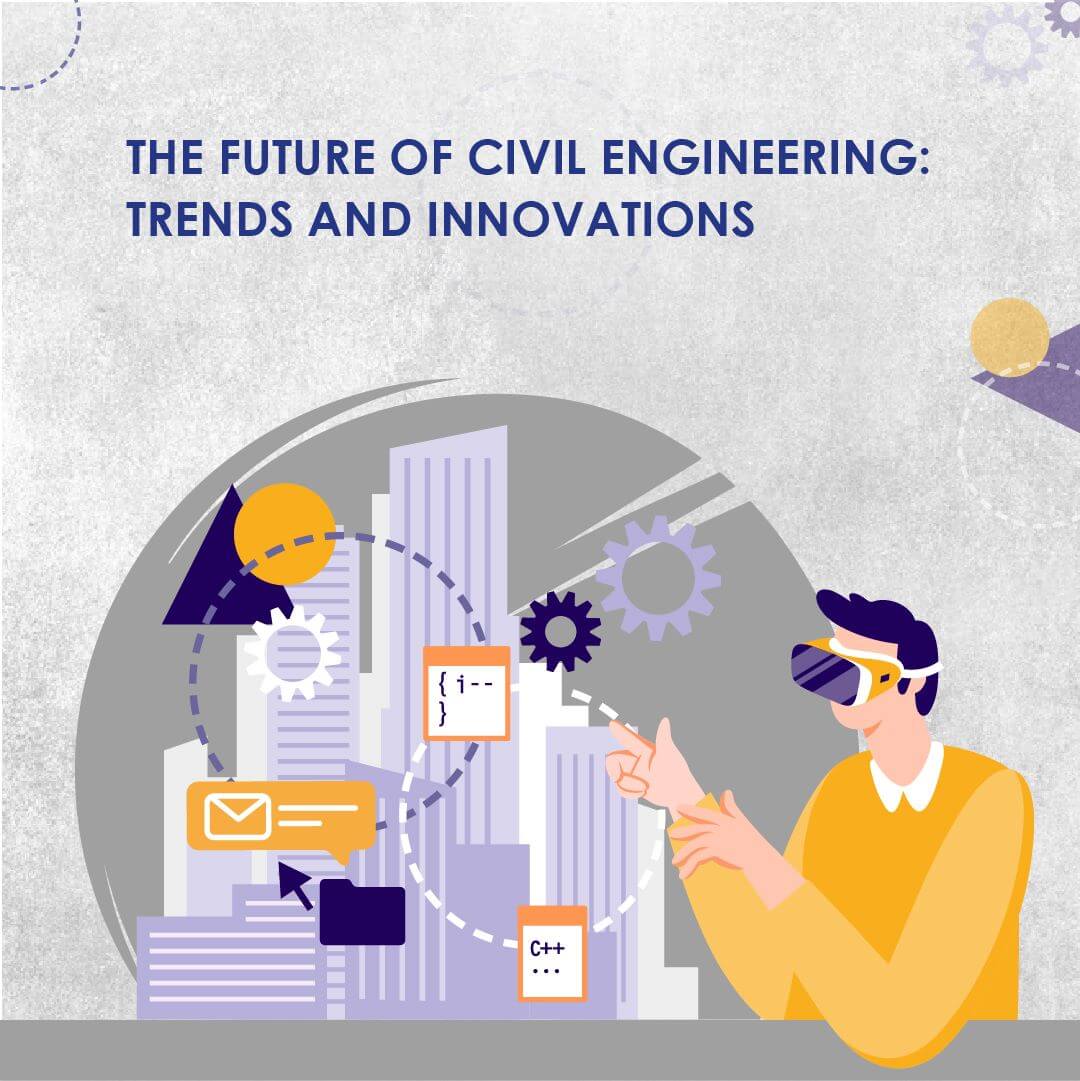Reasons Why You Should be a Civil Engineer
Global Impact and International Opportunities
Attractive Salary and Job Security
Technological Advancements and Innovation
Civil engineering is a field that plays a vital role in shaping our modern world. From designing and constructing infrastructure to managing water resources and improving transportation systems, civil engineers are at the forefront of building a sustainable and resilient future. If you're contemplating a career path, here are five compelling reasons why you should consider becoming a civil engineer, with a focus on the future and career scope.
1. Infinite Career Opportunities
Civil engineering offers a plethora of career opportunities, making it one of the most versatile fields in the engineering domain. The demand for infrastructure development and maintenance continues to grow worldwide, ensuring that civil engineers will always be in demand. This demand spans various sectors, including transportation, environmental, geotechnical, structural, and water resources engineering.
With a civil engineering degree, you can work on a wide range of projects, such as designing bridges, roads, buildings, airports, dams, and water treatment plants. You could also specialize in fields like coastal engineering, earthquake engineering, or transportation planning. This variety helps you to select a niche that corresponds to your interests and passions.
Additionally, civil engineers have the opportunity to work in both the public and private sectors, or even start their own consulting firms. The versatility of civil engineering ensures that you can continually explore new avenues and tailor your career to your preferences.

2. Solving Real-World Problems
Civil engineers are the problem solvers of the world, tasked with addressing complex challenges that affect communities and societies. Whether it's improving traffic flow, mitigating environmental impacts, or enhancing water supply systems, civil engineers directly impact people's lives. This aspect of the profession offers a profound sense of purpose and satisfaction.
In today's world, where sustainability and climate change are pressing concerns, civil engineers have a crucial role to play. They design eco-friendly infrastructure, develop innovative solutions to conserve resources and work on projects that reduce carbon footprints. As a civil engineer, you can contribute to creating a more sustainable and resilient future for generations to come.
3. Global Impact and International Opportunities
Civil engineering knows no geographical boundaries. The skills and knowledge you acquire as a civil engineer are transferable worldwide. This means that you can work on projects not only in your home country but also in different parts of the world.
International projects offer unique challenges and experiences. They allow you to collaborate with diverse teams, understand different cultural perspectives, and tackle global issues like climate change, urbanization, and disaster resilience. The ability to work internationally not only broadens your horizons but also makes you a valuable asset in a global job market.
4. Attractive Salary and Job Security
Civil engineering is a profession that rewards hard work and expertise. Due to the critical nature of their work, civil engineers are often well-compensated. The salary levels vary depending on factors such as location, experience, and specialization, but civil engineering consistently ranks among the highest-paying engineering disciplines.
Moreover, civil engineers enjoy strong job security. As long as there is a need for infrastructure, transportation, and environmental solutions, the demand for skilled civil engineers will persist. This stability is particularly appealing in times of economic uncertainty, making civil engineering a reliable career choice.

5. Technological Advancements and Innovation
The field of civil engineering is continuously evolving, thanks to technological advancements. The integration of cutting-edge technologies like Building Information Modeling (BIM), drones, and advanced materials has revolutionized how civil engineers design and execute projects.
Embracing these technologies allows civil engineers to work more efficiently, reduce costs, and improve project outcomes. It also opens up opportunities for innovation. Civil engineers are at the forefront of developing smart cities, sustainable infrastructure, and resilient communities. This constant innovation ensures that the profession remains dynamic and exciting.
Future in Civil Engineering and Career Scope:
In conclusion, a career in civil engineering offers a promising future with a wide range of opportunities and a significant impact on society. As our world faces increasing challenges related to population growth, urbanization, and environmental concerns, the demand for skilled civil engineers will only grow stronger.
To future-proof your career in civil engineering, consider pursuing advanced degrees or certifications in specialized areas such as environmental engineering, transportation planning, or structural analysis. These qualifications can open up new doors and lead to more senior roles with increased responsibilities and higher earning potential.
Furthermore, staying updated with the latest technological trends is essential. Familiarize yourself with software and tools used in civil engineering, such as AutoCAD, MATLAB, and GIS software. Demonstrating proficiency in these technologies will make you a more attractive candidate in the job market.
In conclusion, choosing a career in civil engineering is a wise decision for those seeking diverse opportunities, the chance to solve real-world problems, and a fulfilling profession with a global impact. With a focus on sustainability and innovation, civil engineering is poised to lead the way in creating a better, more resilient future for us all. So, if you're looking for a career that combines creativity, technical expertise, and a profound sense of purpose, consider becoming a civil engineer. Your future in this field is full of potential and possibilities.
OUR RECENT BLOG



